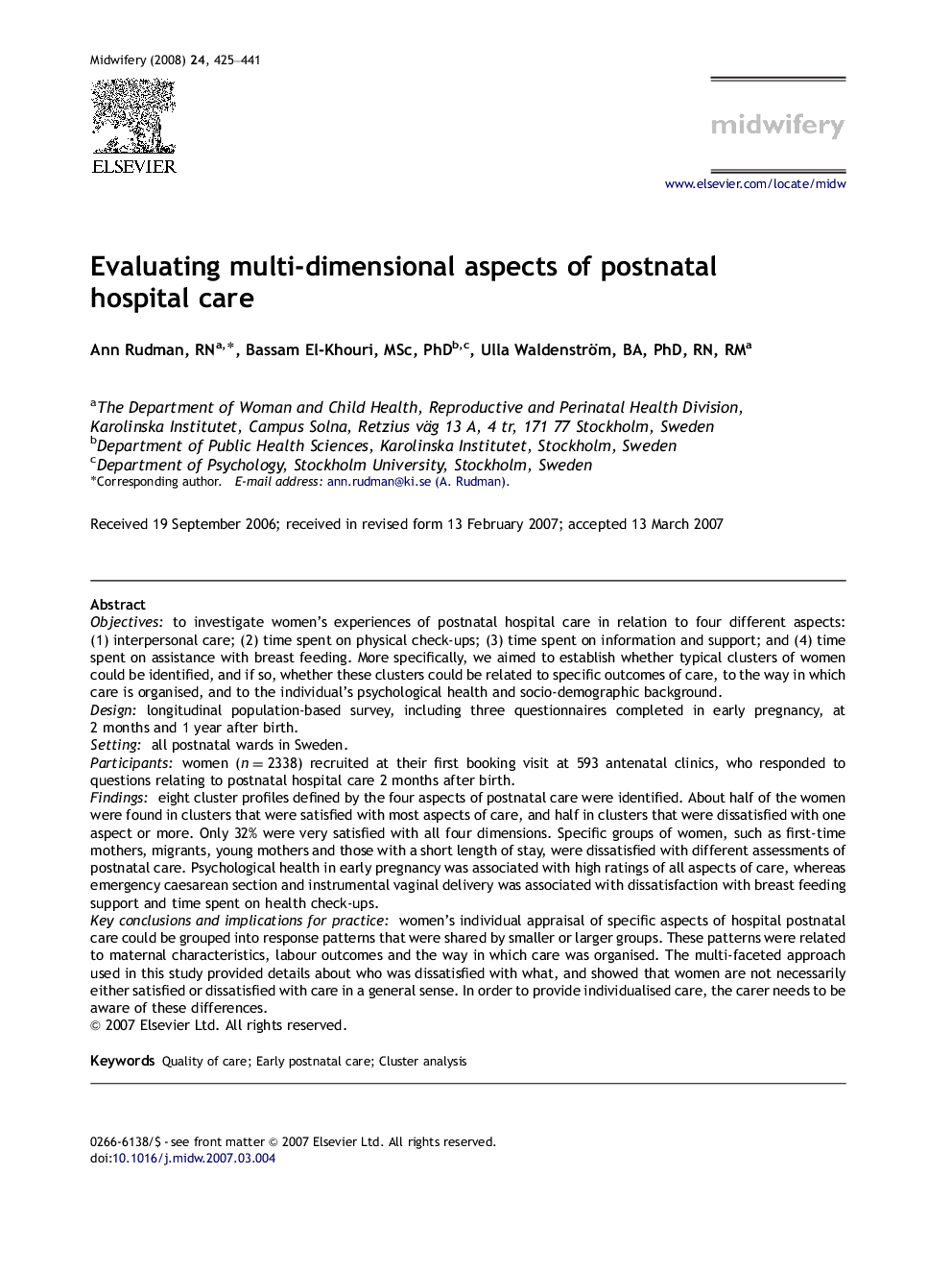| Article ID | Journal | Published Year | Pages | File Type |
|---|---|---|---|---|
| 1085417 | Midwifery | 2008 | 17 Pages |
Objectivesto investigate women's experiences of postnatal hospital care in relation to four different aspects: (1) interpersonal care; (2) time spent on physical check-ups; (3) time spent on information and support; and (4) time spent on assistance with breast feeding. More specifically, we aimed to establish whether typical clusters of women could be identified, and if so, whether these clusters could be related to specific outcomes of care, to the way in which care is organised, and to the individual's psychological health and socio-demographic background.Designlongitudinal population-based survey, including three questionnaires completed in early pregnancy, at 2 months and 1 year after birth.Settingall postnatal wards in Sweden.Participantswomen (n=2338) recruited at their first booking visit at 593 antenatal clinics, who responded to questions relating to postnatal hospital care 2 months after birth.Findingseight cluster profiles defined by the four aspects of postnatal care were identified. About half of the women were found in clusters that were satisfied with most aspects of care, and half in clusters that were dissatisfied with one aspect or more. Only 32% were very satisfied with all four dimensions. Specific groups of women, such as first-time mothers, migrants, young mothers and those with a short length of stay, were dissatisfied with different assessments of postnatal care. Psychological health in early pregnancy was associated with high ratings of all aspects of care, whereas emergency caesarean section and instrumental vaginal delivery was associated with dissatisfaction with breast feeding support and time spent on health check-ups.Key conclusions and implications for practicewomen's individual appraisal of specific aspects of hospital postnatal care could be grouped into response patterns that were shared by smaller or larger groups. These patterns were related to maternal characteristics, labour outcomes and the way in which care was organised. The multi-faceted approach used in this study provided details about who was dissatisfied with what, and showed that women are not necessarily either satisfied or dissatisfied with care in a general sense. In order to provide individualised care, the carer needs to be aware of these differences.
